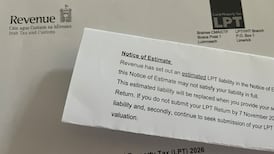HEAR the name George Wallace and what flashes into your mind? A short, aggressive looking man standing in the doorway at the University of Alabama in 1963, trying to stop black students from registering? The redneck hero who almost made it to the White House? Or the remorseful paraplegic, sorry for his racist sins, begging forgiveness from black leaders? Whichever image you have, Dan T. Carter's book offers the full story of how Wallace almost became president.
This is political biography at its best. Detailed, compelling and beautifully crafted, it shows Wallace in all his one dimensional glory. "I started off talking about schools and highways and prisons and taxes and I couldn't make them listen," recalled Wallace of his early career. "Then I began talking about niggers and they stomped the floor."
Wallace never forgot this experience and vowed after losing one Alabama election for being too moderate on the race issue that he would "never be outniggered again".
He wasn't, and was elected Governor of Alabama in 1962 and 1964 (prevented by state law from standing more than twice in succession, he forced his wife to run in his place. She won easily).
Carter traces the Wallace rise from local back to national phenomenon with glorious wit and analysis. He shows how Wallace's racist message ("Segregation now segregation tomorrow . . . segregation forever!") transferred all too easily from America's Deep South to the riot torn urban north of the late 1960s.
("They all hate black people, all of them! They're all Southern! The whole United States is Southern!")
In 1968, this crude political message, backed by a sophisticated direct mail campaign, won five states for Wallace's American Independent Party. By 1972, his anti integration message unchanged, he was within grasp of the Democratic Party nomination when he was shot through the spine while campaigning, and was crippled. "Why has this happened to me?" said an astonished Wallace. "If I were a mean man, maybe I could understand it, but I've never done anything to hurt anybody. I didn't deserve this."
Arthur Bremer, Wallace's would be assassin, had tried and failed to kill President Richard Nixon a few weeks before, so settled for an attempt on Wallace in the final days of the Maryland primary. Right wing America almost lost its hero (Elvis later offered to retaliate against Bremer, but Wallace advised against it).
A half hearted run for the presidency in 1976 followed by two more terms as Alabama Governor kept his political career alive, but the paraplegic Wallace was never again the force he had once been. An intense period of introspection led to his telephoning Martin Luther King's widow to ask for absolution, an exercise he repeated with dozens of black leaders in an attempt to cleanse his soul.
"It is easy to tilt the scales from condemnation to forgiveness, particularly when we see in our mind's eye a broken and penitent George Wallace," suggests Carter. Perhaps so, but it's also hard to forget the pseudo legitimacy he bestowed on some hateful ideas, dragging racism into the mainstream and paving the way for Ronald Reagan.
Whatever we judge to be Wallace's proper place in history, there is no doubt that he will be remembered long after most other post war American politicians have been forgotten. Carter, inevitably, gets Wallace's political epitaph exactly right: "He was the most influential loser in twentieth century American politics."









